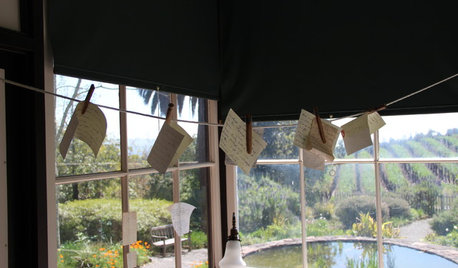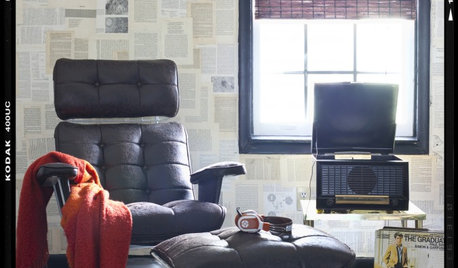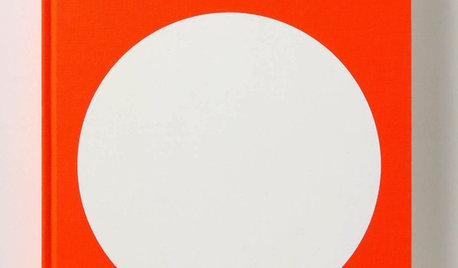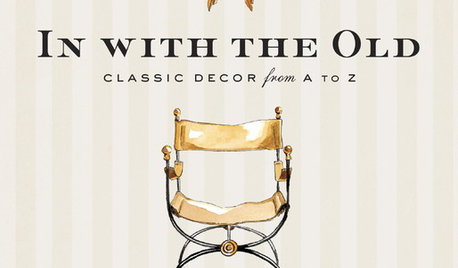Writing a book
popi_gw
17 years ago
Related Stories

RANCH HOMESSee the Estate That Drove Jack London to Write
In honor of the ‘Call of the Wild’ author’s birthday January 12, we tour the reason he wrote all those books
Full Story
GARDENING GUIDESThe Quotable Garden: Writings That Will Grab Your Heart
Maybe you’ll see yourself in these reflections. Or maybe you’ll find a whole new way of looking at gardening
Full Story
FURNITUREA Love Letter to Writing Desks
Handwritten notes often become etched in our memories, but these writing desks are memorable in their own right
Full Story
DECORATING GUIDESDiscover the Draw of Writing on the Walls
Let your freehand break free with write-on wallpaper, dry-erase paint and other design inventions that celebrate the scribble
Full Story
DECORATING PROJECTSDIY Project: Vintage Book Wallpaper
Give your home getaway a well-read look with writing on the wall
Full Story
BOOKSBook Tour: Patina Style
See how the chipped, tarnished and rediscovered can inspire your interior design
Full Story
FEEL-GOOD HOME15 Cozy Book Nooks and What They Want You to Read
Put the beach reads away; these comfy spaces are creating a fall reading list. What books do they suggest to you?
Full Story
BOOKS10 Great Coffee Table Books
E-Readers have nothing on these tomes that double as inspiring accessories
Full Story
DECORATING GUIDESBook Tour: Salvage Secrets
Joanne Palmisano Shares Practical Tips for Giving Old Finds New Life
Full Story
TASTEMAKERSClassic Decor Gets Its Due — in a Giftworthy Book
Entertainment and education mingle in this design reference, brimming with anecdotes, history and design lessons for today
Full Story



brendainva
popi_gwOriginal Author
Related Discussions
Trudi when are you going to write a book? :)
Q
You should write a book
Q
If I could write any book I wanted to...
Q
I want to write a book
Q
ccrdmrbks
anyanka
agnespuffin
woodnymph2_gw
agnespuffin
brendainva
anyanka
ccrdmrbks
agnespuffin
popi_gwOriginal Author
picassocat
anyanka
ccrdmrbks
woodnymph2_gw
woodnymph2_gw
smallcoffee
cjoseph
picassocat
popi_gwOriginal Author
brendainva
popi_gwOriginal Author
brendainva
ccrdmrbks
woodnymph2_gw